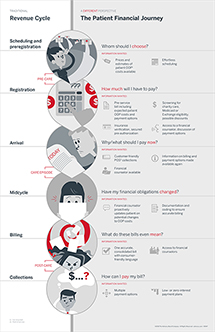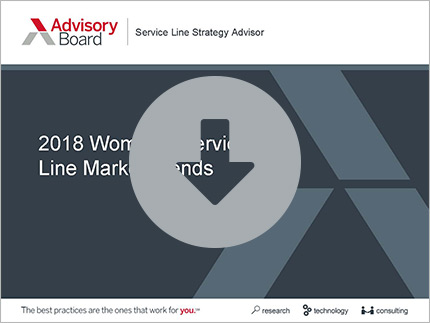Auto logout in seconds.
Continue LogoutWhen Kim S. had breast reconstruction after a double mastectomy, her insurance fully covered the procedure—including the $7,000 combined price for two Mentor MemoryGel implants. But patients undergoing a cosmetic augmentation procedure can often expect to pay far less for the implants, Victoria Knight reports for Kaiser Health News.
Just updated: Access the Women’s Services Preferences Explorer
The breast implant price tag disparity
According to Knight, it's tricky to determine a "reasonable manufacturing cost or wholesale price for a medical-grade bag of silicone" as manufacturers regard their pricing as a trade secret.
The United States' two biggest breast implant manufacturers, Mentor Worldwide and Allergan, declined to share their products' wholesale costs or prices they negotiate with providers, according to Knight.
But Brent Rosen, a cosmetic surgeon who practices in suburb of Philadelphia, said he pays $1,500 to $2,000 per individual silicone implant. Alex Sobel, a cosmetic surgeon who practices in Washington and president of the American Board of Cosmetic Surgery, said he typically pays $250 to $700 per implant for saline and $700 to $1,000 per implant for silicone. The most expensive implants run about $1,350 each, according to Knight.
Medicare pays even less, according to Knight. Data show Medicare in 2016 paid $516.59 for a "silicone or equivalent breast prosthesis."
Each of those prices are significantly less than the $3,500 per implant price Kim S. was charged at a hospital in Pennsylvania, Knight reports. According to Knight, hospitals usually acquire medical devices, such as breast implants, through group purchasing organizations (GPOs), and larger hospitals or providers typically get bigger discounts.
So why are hospital prices so much higher per implant?
What's behind the difference in price tags?
According to Knight, the answer largely comes down to who is footing the bill: the patient or an insurer.
Anupam Jena, a health economist at Harvard Medical School, explained that cosmetic patients are billed a lower price for breast implants because they pay out of pocket. "Cosmetic surgery providers have to compete with each other," Jena said, and "one of the big ways they're going to compete is to compete on price."
By contrast, patients who undergo reconstructive surgery after cancer treatment are more likely to have an insurer foot some or all of the bill. According to Jena, the hospital expects to be able to get a higher payment from an insurer than from an individual, allowing them to charge more for the implants.
Jeffrey McCullough, a health policy professor at the University of Michigan, said, "You can almost guarantee the list price you see on a hospital bill is not what the hospital is getting paid by insurance companies."
But in instances where patients undergoing breast augmentation for medical reasons do not have comprehensive coverage, the higher prices can fall to the patient.
As McCullough said, "If you don't have an insurance company bargaining on your behalf, the default is to charge the patient" (Knight, Kaiser Health News, 12/11).
Get ready-to-use slides on the latest women's health market trends
Want the latest information for your next women's health services meeting? We updated our most popular slides on women's health updated with the latest market trends in 2018 and beyond.
This ready-to-use presentation covers everything from growth outlook and financial considerations to new care management priorities and technology innovations.
Don't miss out on the latest Advisory Board insights
Create your free account to access 1 resource, including the latest research and webinars.
Want access without creating an account?
You have 1 free members-only resource remaining this month.
1 free members-only resources remaining
1 free members-only resources remaining
You've reached your limit of free insights
Become a member to access all of Advisory Board's resources, events, and experts
Never miss out on the latest innovative health care content tailored to you.
Benefits include:
You've reached your limit of free insights
Become a member to access all of Advisory Board's resources, events, and experts
Never miss out on the latest innovative health care content tailored to you.
Benefits include:
This content is available through your Curated Research partnership with Advisory Board. Click on ‘view this resource’ to read the full piece
Email ask@advisory.com to learn more
Click on ‘Become a Member’ to learn about the benefits of a Full-Access partnership with Advisory Board
Never miss out on the latest innovative health care content tailored to you.
Benefits Include:
This is for members only. Learn more.
Click on ‘Become a Member’ to learn about the benefits of a Full-Access partnership with Advisory Board
Never miss out on the latest innovative health care content tailored to you.


